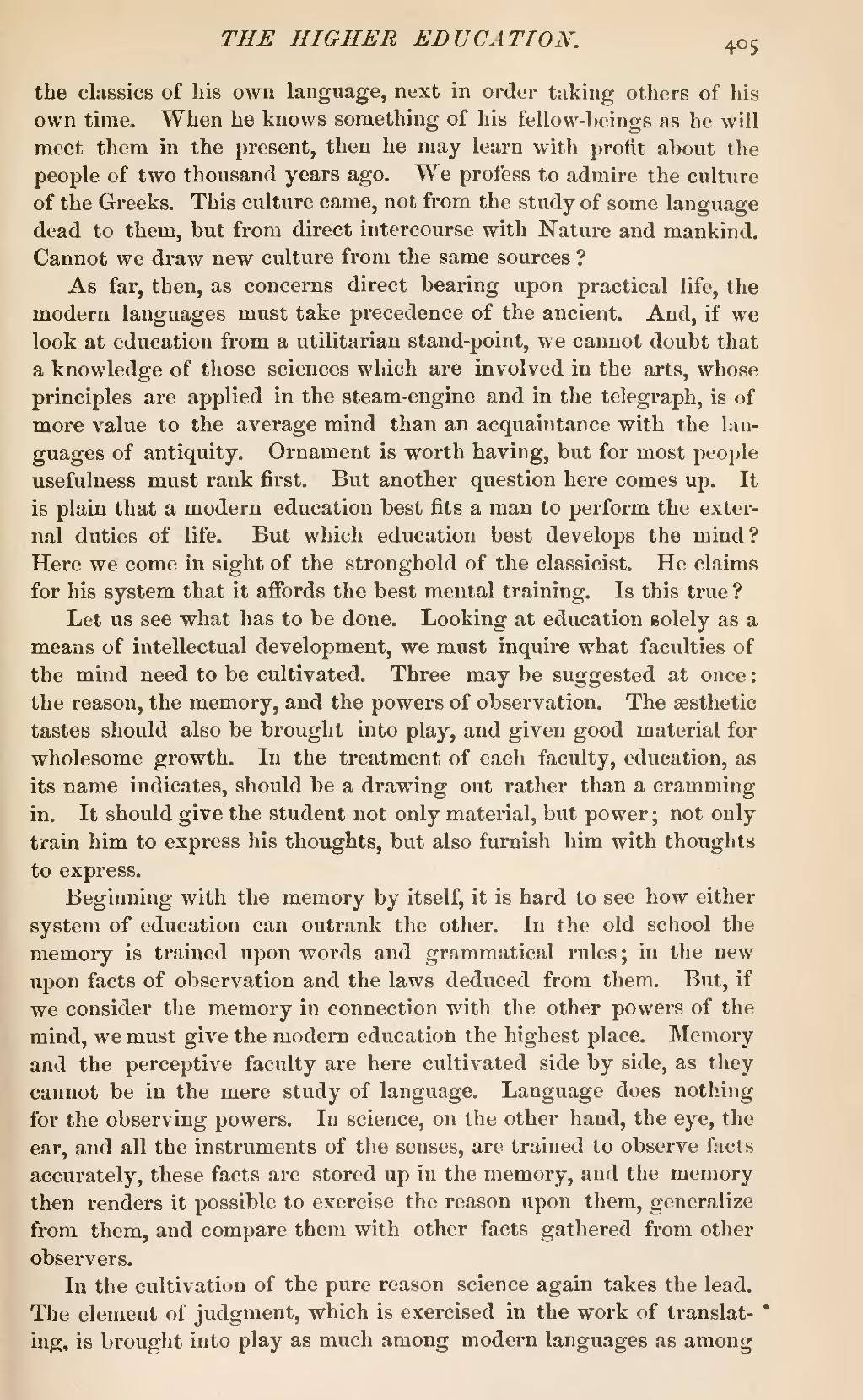the classics of his own language, next in order taking others of his own time. When he knows something of his fellow-beings as he will meet them in the present, then he may learn with profit about the people of two thousand years ago. We profess to admire the culture of the Greeks. This culture came, not from the study of some language dead to them, but from direct intercourse with Nature and mankind. Cannot we draw new culture from the same sources?
As far, then, as concerns direct bearing upon practical life, the modern languages must take precedence of the ancient. And, if we look at education from a utilitarian stand-point, we cannot doubt that a knowledge of those sciences which are involved in the arts, whose principles are applied in the steam-engine and in the telegraph, is of more value to the average mind than an acquaintance with the languages of antiquity. Ornament is worth having, but for most people usefulness must rank first. But another question here comes up. It is plain that a modern education best fits a man to perform the external duties of life. But which education best develops the mind? Here we come in sight of the stronghold of the classicist. He claims for his system that it affords the best mental training. Is this true?
Let us see what has to be done. Looking at education solely as a means of intellectual development, we must inquire what faculties of the mind need to be cultivated. Three may be suggested at once: the reason, the memory, and the powers of observation. The æsthetic tastes should also be brought into play, and given good material for wholesome growth. In the treatment of each faculty, education, as its name indicates, should be a drawing out rather than a cramming in. It should give the student not only material, but power; not only train him to express his thoughts, but also furnish him with thoughts to express.
Beginning with the memory by itself, it is hard to see how either system of education can outrank the other. In the old school the memory is trained upon words and grammatical rules; in the new upon facts of observation and the laws deduced from them. But, if we consider the memory in connection with the other powers of the mind, we must give the modern education the highest place. Memory and the perceptive faculty are here cultivated side by side, as they cannot be in the mere study of language. Language does nothing for the observing powers. In science, on the other hand, the eye, the ear, and all the instruments of the senses, are trained to observe facts accurately, these facts are stored up in the memory, and the memory then renders it possible to exercise the reason upon them, generalize from them, and compare them with other facts gathered from other observers.
In the cultivation of the pure reason science again takes the lead. The element of judgment, which is exercised in the work of translating, is brought into play as much among modern languages as among

